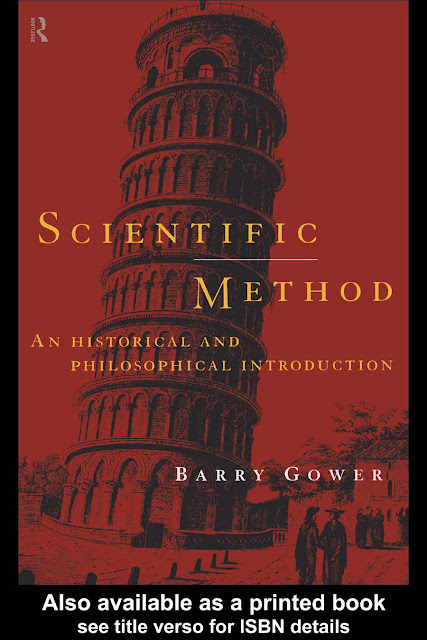Contents
1 Introduction 1
2 Galileo Galilei: New methods for a new science 21
3 Francis Bacon: Why experiments matter 40
4 Isaac Newton: Rules for reasoning scientifically 63
5 The Bernoullis and Thomas Bayes: Probability and scientific
method 83
6 John Herschel, John Stuart Mill and William Whewell: The
uses of hypotheses 109
7 Henri Poincaré and Pierre Duhem: Conventions and
scientific reasoning 130
8 John Venn and Charles Peirce: Probabilities as frequencies 152
9 John Maynard Keynes and Frank Ramsey: Probability logic 170
10 Hans Reichenbach and Karl Popper: The (in) dispensability
of induction 189
11 Rudolf Carnap: Scientific method as Bayesian reasoning 212
12 Conclusion: Experimental interventions and social
constructions 236
Bibliography 262
Index 272
Preface
Those of my friends and colleagues who knew that I was writing a
book about scientific method often expressed their surprise. Why, they
said, should anyone wish to revive such a long-expired steed? People do
not now believe in scientific method. Perhaps they should, for their
dismissal is based more on specious rhetoric than on solid argument;
but still, my friends told me, writers who would be read must address a
real, rather than an ideal, world. My answer has been that the real
world has a history, and to state the truth about it we must take
account of that history. Scientific method—the logic of science—has
occupied the attention of some of the greatest scientific and
philosophical thinkers. If we dismiss what engaged their attention, then
we had better be sure that we know why it engaged their attention.
They were, no doubt, subject to prevailing cultural influences and
attitudes of which they may have been unaware. But so are we, and if
we can, with the help of history, exercise a degree of self-reflection, we
may wish to circumscribe the influences which try to prevail over our
thinking. Setting aside the radical scepticism of some philosophers, we
can know something about the past, including something about how our
predecessors have considered scientific method. But for our predecessors
the future, including that future of theirs in which we live, is unknown.
We should take advantage of that difference. We willingly assert that
our predecessors would not have believed some of what their
contemporaries urged them to believe about scientific method if they
had known what we know about it; we should just as willingly assert
that we would not believe some of what our contemporaries urge us to
believe about scientific method if we knew what our predecessors had
known about it.
Not unexpectedly, few friends have been persuaded. Many, though,
have not only tolerated my persistence, but encouraged and helped me
to promote my unfashionable view. This is my opportunity to thank
them. But I must also record my intellectual debt to Bob MacGowan
and Rom Harre who introduced me to the philosophy of science, and to
David Knight with whom I have been teaching the history and
philosophy of science for almost thirty years. For helpful comments and
criticism of various chapters of this book I thank Vernon Armitage,
Donald Gillies, Stathis Psillos, Geoffrey Scarre and Michael Sharratt. I
have not always taken the advice they gave me, so, for that reason as
well as others, the faults that remain are my faults. Thanks, too, to the
Research Committee of Durham University and to my colleagues in the
Philosophy Department for a period of leave in 1994 enabling me to
begin work on the book. Chapters, or parts of chapters, have been read
to audiences in Belfast, Dublin, London, Florence and Virginia, as well
as in Durham, and I am grateful for the advice I have received on those
occasions. For less direct but nevertheless invaluable help I thank Robin
Hendry, Roger MacAdam, Holger Maehle, David Mossley, Kathleen
Natrass and Wendy Short.
But the greatest encouragement has come from my students at
Durham University, and therefore my most heartfelt thanks go to them.
I have been very lucky in having the opportunity to introduce
philosophy to students of the natural sciences. Their response, their
questions, their suggestions and their critical judgement have been very
much in my mind as I wrote. Such success as I have had in identifying,
articulating and addressing the philosophical questions which are the
subject of this book is due in large part to their aid.
In this book’s concluding chapter I have adapted material which
appeared in ‘Method in methodology’, Methodology and Science 18 (1985):
30–47, and in ‘Chalmers on method’, British Journal for the Philosophy of
Science 39 (1988): 59–65. I am grateful to the editors of those journals
for permission to recycle the required paragraphs.
Barry Gower
January 1996

No comments:
Post a Comment